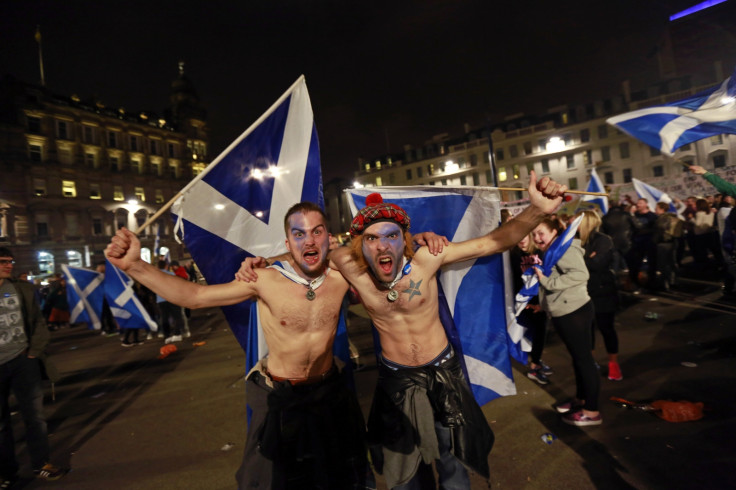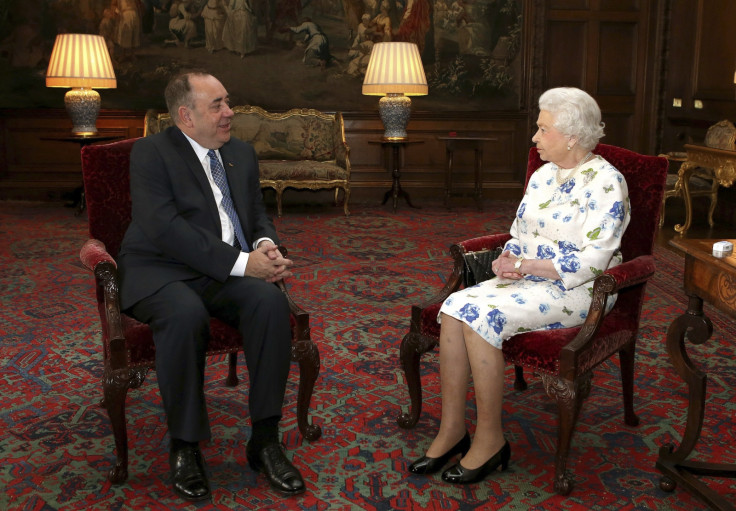Scottish independence supporters ready for assault on Westminster after 2014 gains

Due to my fondness for Scottish traditional music, I found myself seeing referendum year out in almost exactly the same spot where I saw it in. Twelve months ago, I had been distinctly reluctant to embrace the start of 2014, for fear that it might be the year in which the long-cherished dream of independence fizzled and died. Although there had been some modest signs of hope in the final opinion polls of 2013, the game-changing January poll from ICM was still a few weeks away, meaning that Yes supporters had to face Hogmanay in the knowledge that we appeared to be a long way behind.
And yet, as I watched the fireworks explode above the Edinburgh skyline, I had a strange sense of peace, and a feeling that one way or another, things were going to be absolutely fine. As it turned out, that brief moment of mindlessly naive New Year optimism may well have been justified, although not for a reason that I could possibly have anticipated at the time. I certainly didn't foresee that the No side could narrowly win the referendum, only for things to work out just fine for the Yes camp anyway.
Fast forward a year, and as I watched the 2015 edition of the Edinburgh fireworks, I was contemplating a political state of play that has been utterly transformed. Instead of clinging to any signs of life in the opinion polls, I and other SNP supporters have spent the last few months rubbing our eyes in disbelief and screaming "pinch me!" Five different polling companies are in agreement that the SNP have an enormous lead over Labour for the forthcoming UK general election, of anything between 17 and 29 points. A golden opportunity to at last make Westminster dance to a Scottish tune is being tantalisingly dangled before our eyes.
So whereas last year we were trying to think of events to come that might change things in our favour, this time around we're more preoccupied with what might yet go wrong. Leaving aside the perennial problem of what Macmillan called "events, dear boy, events", there are two things in particular I'll be looking out for over the coming months.
The first is the issue of the possible pre-election TV leaders' debates. The broadcasters have gone very quiet on this subject since the outcry over their plans to totally exclude the SNP from the main debates, and it's reasonable to conclude that an awareness has been gradually dawning that the proposed format is not only unjust, but more pertinently, is no longer sellable to the court of public opinion.
For one thing, the SNP, Plaid Cymru and the Greens have very shrewdly announced an anti-austerity alliance, which means that the broadcasters must, as things stand, try to justify the exclusion of a Britain-wide political force that has commanded at least 10% of the vote in most recent opinion polls – more than the Liberal Democrats, and not far short of Ukip. And the issue cannot be credibly resolved by simply adding Natalie Bennett of the Greens to the planned debate line-up.
Everyone knows that it is Nicola Sturgeon, not Natalie Bennett, who leads the party that will make up the vast bulk of the anti-austerity bloc in the new House of Commons. The SNP look set, in their own right, to comfortably overtake the Liberal Democrats as the third-biggest parliamentary party.
If the broadcasters pigheadedly stick to their guns, there are only two possible outcomes for them, neither of which they should relish. Either they will be seen to have directly altered the outcome of the election, just as they did in 2010, in which case they will face the wrath of pro-independence viewers in Scotland who are already shocked to the core by the antics of London-based TV journalists towards the end of the referendum campaign. Or (and this is perhaps more probable) the SNP vote will this time prove resilient enough to withstand a set of rigged debates, in which case the broadcasters will have to explain to bewildered viewers in England why the new parliament's kingmakers seem to have arrived out of thin air, like an alien visitation. Good democrats everywhere should hope that these points of self-interest will help the BBC, ITV and Sky to finally do the right thing.

The other development I'll be looking out for is the reaction of SNP members and voters to any post-election deal that is done with Labour. A regular commenter on my blog said the other day that if the SNP entered into a Westminster coalition, he would tear up his membership card. In reality, the deal is more likely to be a confidence-and-supply arrangement that involves the SNP voting from the opposition benches to sustain a minority Labour administration in office, in return for the implementation of an agreed programme for government.
That programme can be expected to include the scrapping of Trident, and the transfer of far more powers to the Scottish Parliament than was envisaged by the hopeless Smith report. But even that sort of deal could be deeply uncomfortable for some SNP members who would prefer the party to remain "pure", and to rely on the moral force of its mandate to bring about change.
My guess is that the vast majority of members recognise that the only way to maintain purity was to win the referendum outright, and that retreating into a monastery isn't the way to bring about Scottish self-government in the environment we find ourselves in now. But only time will tell if that assessment is correct.
So there are still plenty of challenges and uncertainties that lie ahead for the SNP in general election year. But I'll tell you this – it's a hell of a lot more fun looking forward to the challenges of a new year when you're twenty points ahead, than it is when you're twenty points behind.
James Kelly is author of the Scottish pro-independence blog, SCOT goes POP! Voted one of the UK's top political bloggers, you can hear more from James on Twitter: @JamesKelly
© Copyright IBTimes 2025. All rights reserved.






















